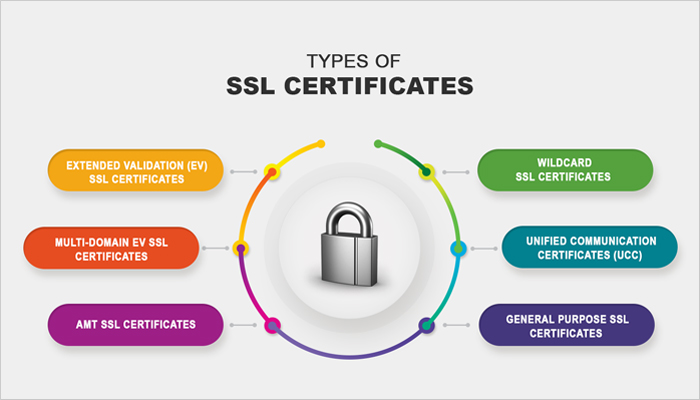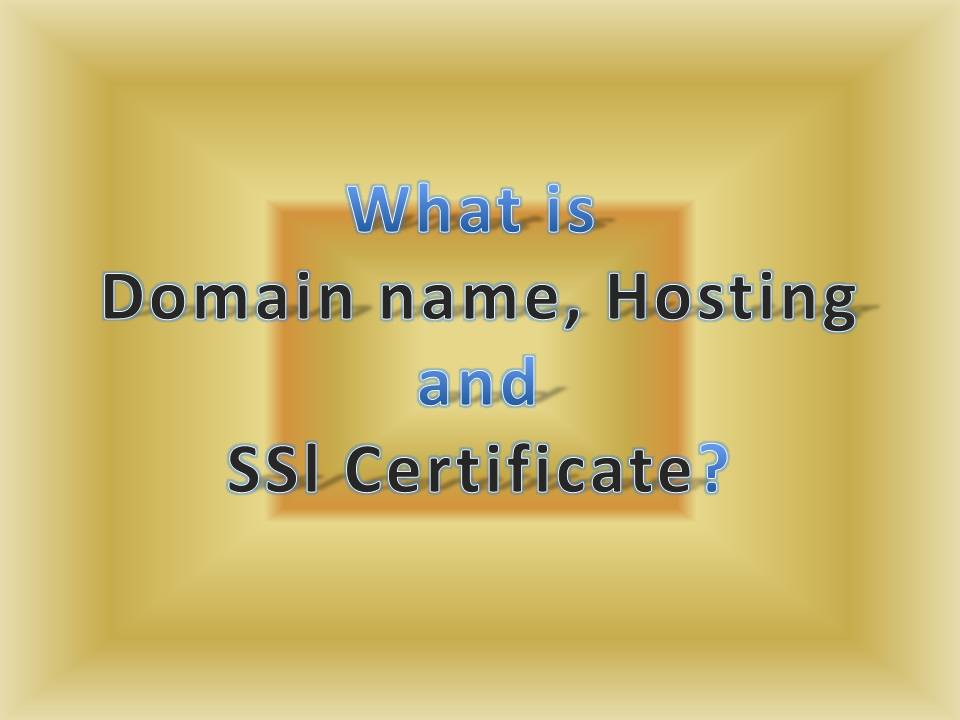If you own or maintain a website, you may occasionally come across terminology like website hosting, domain names, and SSL certificates . We’ve put together a simple tutorial and infographic that explain how they all fit together to help you grasp what these phrases imply so you can make better decisions about your website and have conversations you can truly understand.

What is Domain Names ?
The name of your website is in your domain name or your specific online location. what you enter in an address box to access your website directly. Take www.google.com and www.afrinnovators.com as examples. You never purchase domain names on a lifetime basis from a domain registrar (such as 123Reg, names.co.rw, or Go Daddy). Normally, you can purchase a domain name for 1 to 10 years, after which time you must pay to renew it. If you don’t, it will be sold to the general public once more and anyone else can purchase it. It is called a web address because of this. It frequently serves as the first point of contact for marketing materials, so it must be succinct and memorable.
You may be wondering what the point of these is.🙄🤦♂️🤷♀️????
In essence, the Internet is a vast web of connected computers. They each have what are known as IP addresses to identify themselves.
The format of an IP address is 202.158.45.123.
These numbers are easy for computers to memorize, but we humans want something a little more memorable. This is when domain names serve a purpose.
Instead than having to remember the IP address of a website, domain names are often made up of a company, cause, or club name that is simple to remember.
DNS: The mechanism that links emails sent to your business email account from website visitors
The technology that links your domain name with your hosting is known as DNS (Domain Name System). DNS links a visitor to your website when they enter www.nameofyourbusiness.co.uk. This is accomplished by routing them to the special IP address of your website host.
By routing emails to the specific IP address of your email host, your DNS also makes it possible for emails to be sent to your company email address, such as shs@mybusiness.co.rw.
What is Hosting(Web hosting)?
A number of files make up your website. These files must be kept on a computer that is connected to the internet. Consider hosting as a home where you keep all of your possessions (or files in this case).
The server (a computer connected to the internet) where your website is stored is referred to as website hosting. In order for your clients to locate you online, every website needs hosting. Every host or server has an IP address, which is a string of special numbers that the DNS uses to connect users to your website when they enter in your domain name. The phrases host and server are equivalent.
The phrase “web hosting” typically refers to a business that rents out its computers/servers that are kept in data centers. These businesses are also in charge of maintaining the equipment, and they typically offer uptime guarantees, backups, configurations, and disaster recovery.
What is SSL Certificate?
SSL stands for Secure Socket Layer
SSL Certificate is certificate that protects and encrypts the data on your website
The small green lock you see on the majority of websites today is an SSL Certificate, which provides an additional degree of security for users of your website. Have you ever wondered why some websites start with http:// and others with https://?
If your domain name begins with https:// (notice the “s” for secure) and has a padlock icon, it has an SSL (Secure Socket Layer) certificate. This protects and encrypts any data your website processes, such as when a customer submits a contact form for questions or makes a purchase from your business.
Types of SSL Certificates:
- Extended Validation (EV) SSL Certificates
- Multi-Domain EV SSL Certificates
- Wildcard SSL Certificates
- Unified Communication Certificates (UCC)
- AMT SSL Certificates
- General Purpose SSL Certificates
- Personal Authentification/Email Certificates
- Mobile Certificates

Extended Validation (EV) SSL Certificates
Extended validation certificate (EV): It’s a certificate that complies with X.509 standards and is signed by a certificate authority key authorized to issue EV certificates and demonstrates the legal entity of the owner.
Multi-Domain EV SSL Certificates
A domain owner may assign numerous domains and sub-domains to a single SSL certificate using extended validation multi-domain SSL certificates. Because they permit the inclusion of numerous fully qualified domain names, they differ from conventional multi-domain SSL certificates (FQDN).
Wildcard SSL Certificates
A wildcard certificate : It is a digital certificate that is applied to a domain and all of its subdomains .Wildcards are frequently used by Secure Sockets Layer (SSL) certificates to extend SSL encryption to subdomains.
Unified Communication Certificates (UCC)
An example of a multi-domain certificate used for SSL authentication is a unified communications certificate (UCC). One certificate may contain numerous domain names and host names contained within a domain. Storage Area Network (SAN) Certificate is another name for a Unified Communications Certificate.
AMT SSL Certificate
The Intel vPRO platform requires AMT certificates, a particular kind of SSL certificate, in order to authorize and secure remote monitoring and configuration of computers and servers.
General Purpose SSL Certificates
These typical SSL certificates offer SSL encryption in addition to the usual validation/vetting for web site security. These organizationally verified (OV) certificates have the name and location of the organization on them.
Personal Authentification/Email Certificates
Emails can be encrypted and trusted digital signatures can be added using personal authentication certificates. This manual will take you step-by-step through the entire process of getting a personal authentication certificate, from buying the certificate to collecting it and installing it.
Mobile Certificates
A formalized program that certifies a participant’s proficiency in duties connected to mobile security and administration is known as a mobile security certification. Mobile security aims to prevent network security from being compromised by mobile devices, their apps, and their connections.
Conclusion
🔐One of the key components of the internet is the domain name system. The process of connecting to the internet begins with this. It guarantees that the internet is not just user-friendly but also aids in quickly loading the desired content.
Without DNS, navigating the internet’s vast web of websites would be a huge task for all of us.🔐👍
You gained knowledge of name server configuration. By multihoming your websites, you can save money on hardware and access domain services that would otherwise require paying a domain registrar or DNS administration service.
🔐 All websites should have SSLs, even those that aren’t e-commerce sites, as Google alerts users who visit sites without SSL that their personal data may be stolen.🔐👍






2 Responses